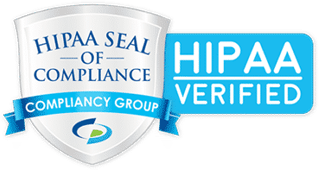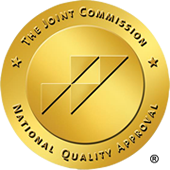Dialectical Behavior Therapy (DBT) in Texas
At Origins Texas in South Padre Island, Texas, we provide a full spectrum of care—including detox, residential treatment, outpatient programs, partial hospitalization, and intensive outpatient treatment—that is tailored to each person’s unique needs. Our dual diagnosis treatment further ensures that underlying mental health conditions are addressed alongside addiction, creating a strong foundation for lasting recovery. With DBT, you can develop the skills to live a more balanced, mindful, and fulfilling life while breaking free from addiction.

Understanding Dialectical Behavior Therapy
The Principles of DBT
Dialectical Behavior Therapy (DBT) is built on four core principles, each designed to help individuals manage emotions, improve relationships, and develop healthier coping mechanisms. Here’s a breakdown:
- Mindfulness: This principle focuses on being present in the moment and fully aware of thoughts, feelings, and surroundings. It helps individuals observe and accept their experiences without judgment, reducing impulsive reactions.
- Distress Tolerance: DBT teaches skills to cope with and tolerate painful emotions or crises without resorting to harmful behaviors. This includes techniques like distraction, self-soothing, and radical acceptance.
- Emotion Regulation: This principle helps individuals understand and manage intense emotions. By identifying triggers and learning strategies to reduce emotional vulnerability, people can respond to situations more effectively.
- Interpersonal Effectiveness: DBT emphasizes building and maintaining healthy relationships. It teaches skills like assertiveness, setting boundaries, and navigating conflicts while respecting both personal needs and the needs of others.
These principles work together to create a balanced approach to managing life’s challenges, making DBT particularly effective for individuals struggling with addiction and co-occurring mental health issues. Let me know if you’d like to dive deeper into any of these!
The Role of DBT in Mental Health Treatment
In dual diagnosis treatment, DBT (Dialectical Behavior Therapy) provides an evidence-based framework to address substance use disorders and co-occurring mental health conditions simultaneously. Recognizing how addiction and psychiatric symptoms interact, DBT equips clients with practical skills to manage emotional dysregulation, a key driver of relapse. Its structured approach includes individual therapy, group skills training, and real-time coaching, offering support across all phases of recovery.
DBT is effective for dual diagnosis treatment because it:
Targets root causes: Teaches distress tolerance and emotion regulation to break the cycle of self-medication
Supports relapse prevention: Tools like “urge surfing” help clients navigate cravings triggered by emotional pain
Has real-world applications: Skills improve relationship dynamics, boundary-setting, and crisis management—critical for sustaining recovery
For example, a client with co-occurring PTSD and addiction might use DBT’s grounding techniques to avoid substance use during flashbacks. Others learn to replace impulsive reactions with mindful decision-making.
Our dual diagnosis program combines DBT with medical and experiential therapies for whole-person recovery. Learn more about our approach or speak to our admissions team today.
The Connection Between DBT and Addiction
How DBT Addresses Substance Abuse?
DBT addresses substance abuse by teaching clients to recognize triggers and manage impulses. One of the primary goals is to help individuals identify emotional vulnerabilities that may lead to substance use as a coping mechanism.
Through skills training, participants learn healthier alternatives for coping with distress, such as mindfulness techniques and interpersonal effectiveness strategies, which help minimize the urge to engage in harmful behaviors related to substance use. Additionally, the practice of distress tolerance equips individuals with the ability to withstand emotional pain without resorting to substances, fostering resilience and self-efficacy. This skill is particularly crucial in high-stress situations where the temptation to relapse may be strongest.
How DBT Supports Addiction Recovery
The structured nature of DBT, coupled with its empathetic approach, aids participants in pursuing long-term recovery, with many reporting improved life satisfaction and functioning. The group therapy component of DBT fosters a sense of community and support among participants, which can be instrumental in the recovery process. Sharing experiences and challenges in a safe environment not only reduces feelings of isolation but also enhances accountability, as individuals encourage one another to stay committed to their recovery goals. This collective journey toward healing can significantly bolster motivation and reinforce the skills learned during therapy.
Contact Our Admissions Team Today
The Components of DBT for Addiction
One of the hallmarks of DBT for addiction is its skills training module. This type of therapy focuses on teaching clients four core areas: mindfulness, distress tolerance, emotional regulation, and interpersonal effectiveness. Each element equips individuals with practical tools that can be utilized in their daily lives to manage cravings and stress without resorting to substance use.
Mindfulness, for instance, helps clients become more aware of their thoughts and feelings, allowing them to respond rather than react to cravings and triggers. This heightened awareness can lead to a greater sense of control over one’s impulses, making it easier to navigate challenging situations without turning to substances for relief. Additionally, mindfulness practices, such as meditation and breathing exercises, can enhance overall mental well-being, reducing anxiety and promoting a sense of calm.
Individual therapy sessions form the backbone of DBT, providing a safe space for clients to explore their personal experiences and challenges. During these sessions, therapists work collaboratively with clients to set specific goals related to their recovery journey.
These personalized sessions provide an opportunity to delve deeper into the underlying issues contributing to addiction, fostering a sense of understanding and empowerment within the therapeutic relationship. Clients are encouraged to reflect on their past behaviors and triggers, which can illuminate patterns that may have previously gone unnoticed. This reflective process not only aids in developing coping strategies but also instills a sense of accountability and ownership over one’s recovery path.
A strong support network makes clients feel less isolated in their recovery journey and more capable of handling life’s challenges. The immediacy of phone coaching can also reinforce the skills learned in therapy, allowing clients to practice and refine their techniques in real-time.
We offer ongoing support through our aftercare and alumni program to not only enhance the therapeutic alliance but also empower clients to confront their challenges head-on, reinforcing the idea that they are not alone in their struggles. The ability to connect with a therapist during a crisis can significantly reduce the likelihood of relapse, as clients are equipped with the tools and encouragement they need to navigate difficult moments successfully.

Testimonials
![]()
![]()
![]()
![]()
![]()
Victoria H
I couldn’t recommend Origins more, I first attended their IOP program, then their residential program in South Padre. I’m writing this today a year and a half sober and going strong. Origins has literally saved my life in more ways than one.
![]()
![]()
![]()
![]()
![]()
Emily W
The clinicians are knowledgeable and skilled in a way that is always helpful and never harmful. This program brought me lasting healing and freedom.
![]()
![]()
![]()
![]()
![]()
Mary L
I cannot say enough about Hannah’s House. I entered broken, tired and far more sick than I realized. I was treated with kindness, love, patience and respect by all. I was so frightened to go but sad to leave, that speaks volumes. Thank you from the bottom of my heart to all who put me back together, I am eternally grateful.
![]()
![]()
![]()
![]()
![]()
Jack W
I struggled with my sobriety for over 5 years, but they were able to help me through the 12 steps of AA. I have been sober ever since my experience here. I’ll be hitting 2 years of sobriety in 22 days, thanks to this treatment center. No matter where you go, it’s all about your level of commitment towards gaining a better life ?
![]()
![]()
![]()
![]()
![]()
Jazmine R
Origins was exactly what I needed. The staff were incredibly knowledgeable, compassionate, and helpful. They come with years of experience and consider each individual they’re helping. If you’re looking for a facility that will truly care as much as you/your parents do, or are desperate for a miracle — I can’t recommend Origins more! ❤️
The Benefits of DBT for Addiction
Emotional Regulation and DBT
One of the primary goals of DBT is to enhance emotional regulation, an essential skill for those recovering from addiction. By learning to identify and manage fluctuating emotions, clients can mitigate risks that could lead to relapse.
Skills in emotional regulation help individuals face challenging emotions without resorting to substance use as a form of self-medication, fostering long-term resilience and emotional stability. This process often includes mindfulness practices that encourage individuals to observe their feelings without judgment, allowing them to create a space between their emotions and their reactions. As a result, clients can respond to emotional triggers with greater clarity and intention rather than impulsively turning to substances for relief.

Distress Tolerance in DBT
Distress tolerance is another critical skill promoted through DBT, teaching individuals how to withstand difficult emotional states without turning to substances. This ability to remain present during distress can significantly lower the urge to engage in substance use.
By developing these skills, clients learn adaptive coping mechanisms, enhancing their capacity to navigate life’s inevitable ups and downs with greater ease and confidence. Techniques such as self-soothing, distraction, and radical acceptance empower individuals to confront their pain rather than escape from it. As they practice these strategies, they build a toolkit of resources that can be accessed during moments of crisis, ultimately leading to a more profound sense of self-efficacy and control over their lives.
Nationally Recognized & Accredited




Challenges and Considerations in DBT for Addiction
Potential Limitations of DBT
One potential limitation of DBT is that it requires a strong commitment from participants, as the process can be demanding. Sessions and skills training require active participation and a willingness to address uncomfortable emotions and behaviors.
Although DBT is effective, it may not be the best fit for everyone. Individuals with specific cognitive impairments or those who may not be ready for the level of self-reflection required might find it challenging.

Who is DBT Most Suitable For?
DBT is particularly beneficial for individuals with complex emotional patterns, including those struggling with borderline personality disorder, severe emotional dysregulation, and co-occurring mental health disorders alongside addiction. It nurtures an environment where these individuals can grow and heal.
Learn if DBT for Addiction is Right For You or A Loved One
When combined with evidence-based treatments like detox, residential care, outpatient therapy, and dual diagnosis programs, DBT can provide the strong foundation needed for long-term recovery. No matter where you are in your journey, our team is here to create a personalized treatment plan that meets your unique needs. Take the first courageous step toward a healthier, more fulfilling future. Contact Origins Texas today, and let us guide you on the path to lasting recovery.














